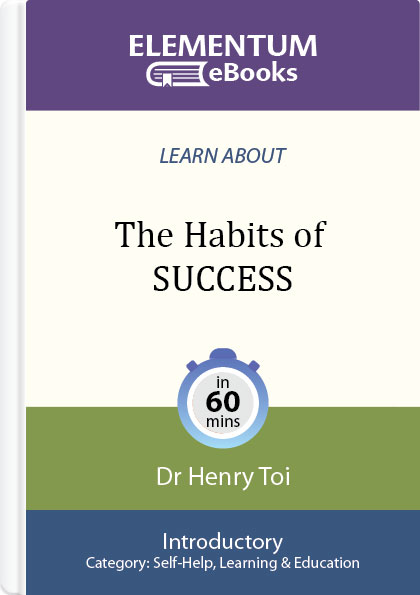
$7
This book is meant for:
* teachers, parents, and other educators or care-givers seeking to help their students and children become more skilful thinkers;
* lifelong learners who wish to better understand what is involved in learning, thinking, and creating good habits, and who wish to become more effective in every area of their life.
Why develop the habit of good thinking?
The answer is “because intelligence can be taught”. You can choose to become more intelligent. Whenever a thought is generated, regardless of whether it is self-generated or generated as a result of a stimulus (something we heard or saw), it travels through certain neurological pathways. These thinking patterns, much like the ravines that exist on mountain ranges, are formed as we ‘order’ our thinking regardless of whether we are aware of the process. They are shaped by past experiences and by frequent use of particular thinking habits and assumptions.
The premise that acquiring good knowledge will lead to good thinking is analogous to saying that any driver can drive a well-designed car, that anyone can sing well as long as the lyrics and melodies are correct.
We increase our intelligence by adopting good thinking habits. Habits of S.U.C.C.E.S.S. is founded on the 16 Habits of Mind developed by noted educators Arthur L. Costa and Bena Kallick in 2000. The Habits of S.U.C.C.E.S.S are the 16 Habits of Mind reorganised into seven strands. They are for people who want to have ‘mindful management’ of attributes, capabilities, and enabling skills for employability, who wish to stay effective and relevant in every aspect of their lives. They are for people to apply knowledge and skills in an integrated way but are not specific to occupations or industries. They encompasses core attributes that will make people more effective thinkers in schools, at home, and at work.
These characteristics can be cultivated in almost everyone. It is a set of behaviours that can be taught and modelled. They are traits that can be developed, practiced upon, and measured. They transcend age, religion, race, circumstances, language, and culture.
Fostering the Habits of S.U.C.C.E.S.S. requires active learning strategies in which learners take responsibility for their own learning and become motivated lifelong learners through action learning, situated learning, and project-based learning.
Training the brain to develop these habits of mind requires constant exposure to skilful problem-solving using critical and creative thinking strategies. This training enables the brain to practice and draw on previous experiences. It is what Perkins terms “experiential and reflective intelligence”.
Henry Toi writes on human potential, thinking, and the mind. He is curious about how people can become better versions of themselves. This led him to develop a psychometric tool, ‘The Habits of Mind Assessment Scales’ in addition to several books, the latest being ‘Think Coach Thrive’. When he is not writing or researching, Henry keeps up his love for trail running, cooking, and art. He is the recipient of ‘The Golden Door Awards – REX Karmaveer’ Medal in Jan 2020 for his book ‘Think To Thrive’.
Henry Toi writes on human potential, thinking, and the mind. He is curious about how people can become better versions of themselves. This led him to develop a psychometric tool, ‘The Habits of Mind Assessment Scales’ in addition to several books, the latest being ‘Think Coach Thrive’. When he is not writing or researching, Henry keeps up his love for trail running, cooking, and art. He is the recipient of ‘The Golden Door Awards – REX Karmaveer’ Medal in Jan 2020 for his book ‘Think To Thrive’.